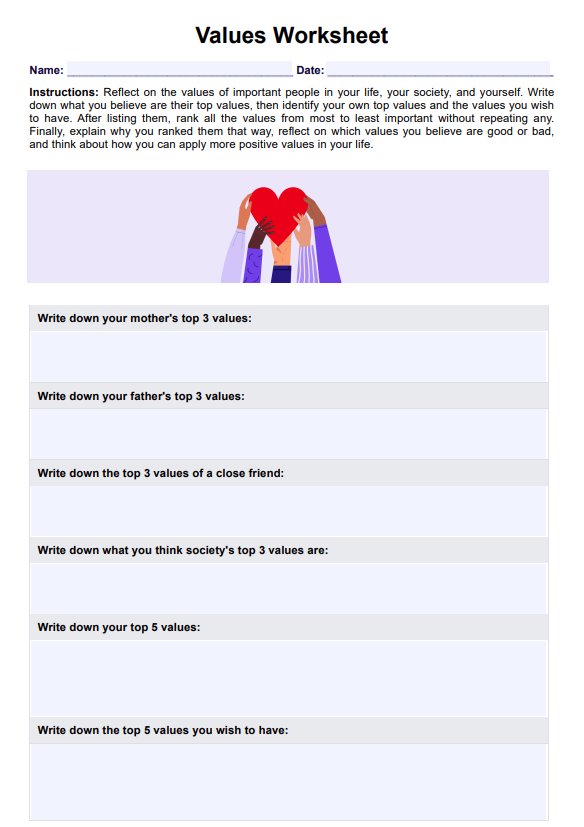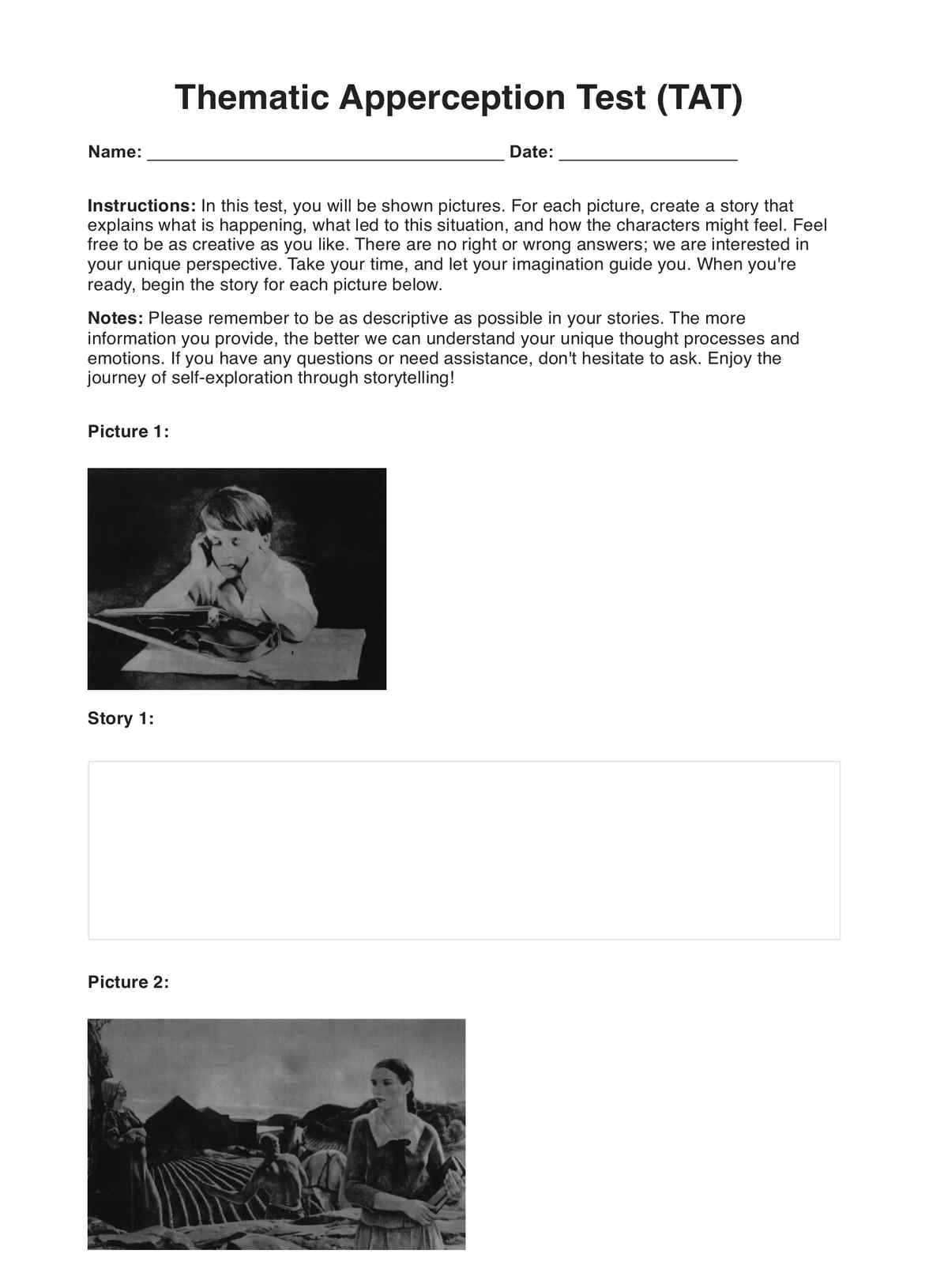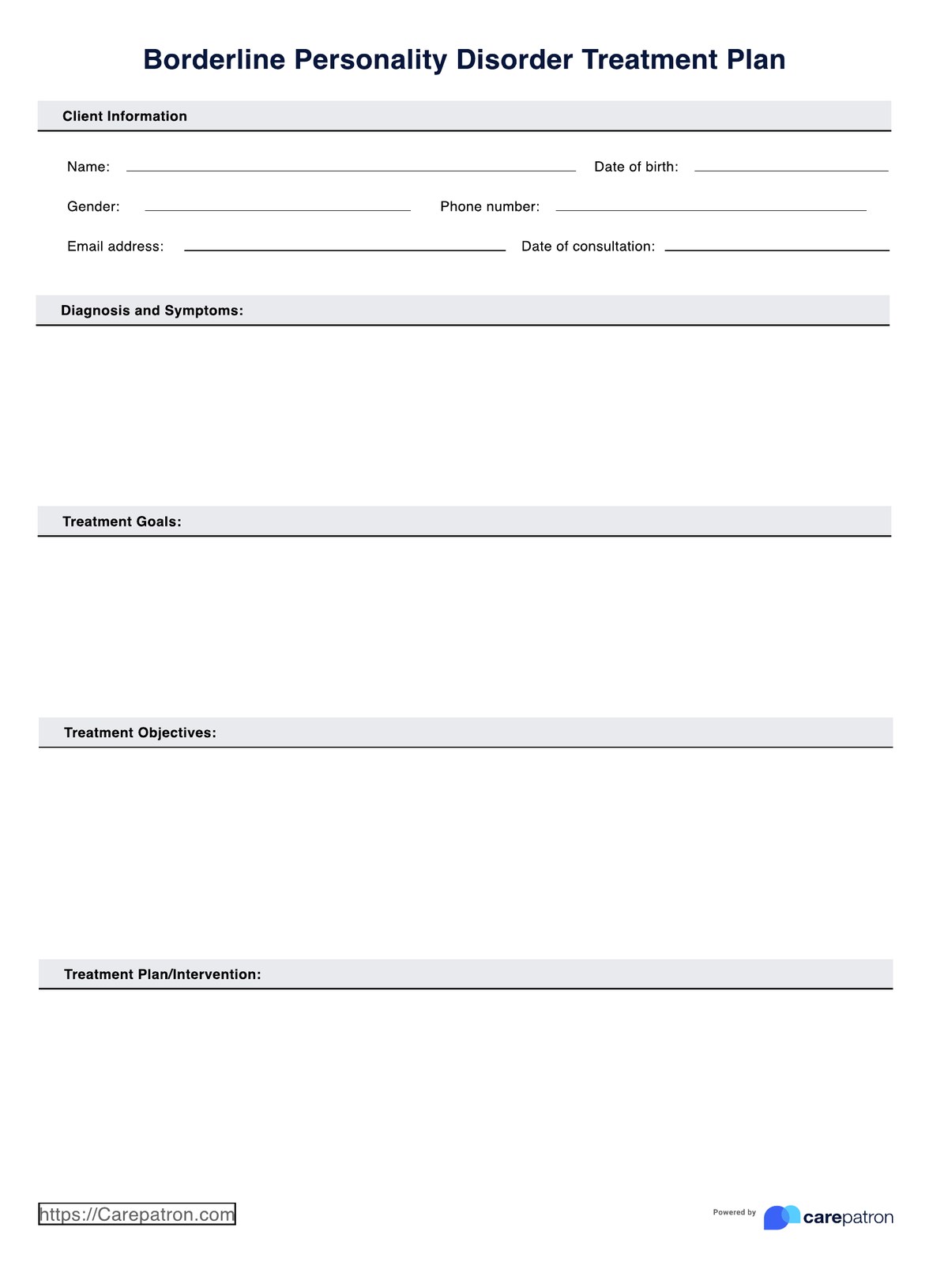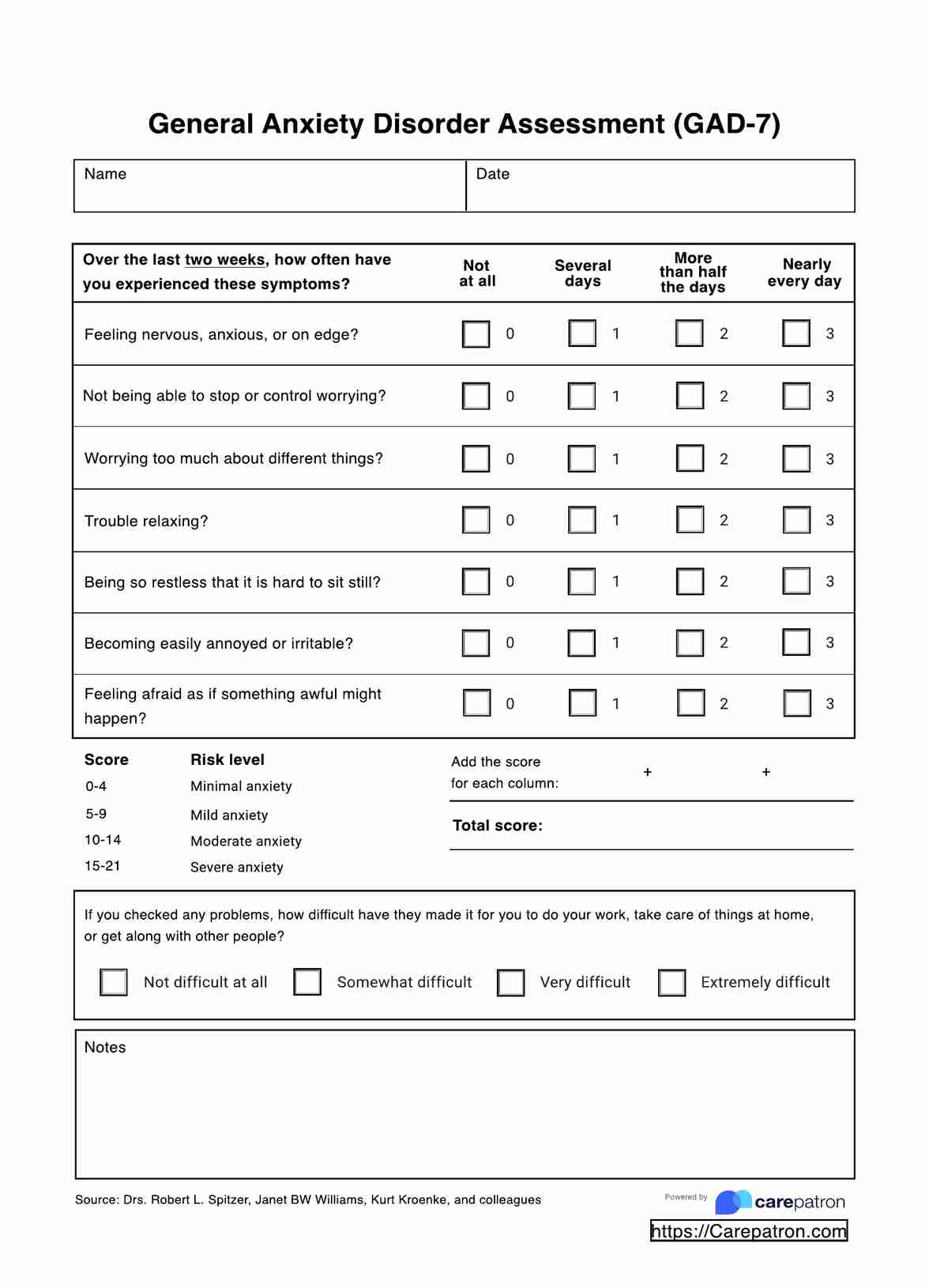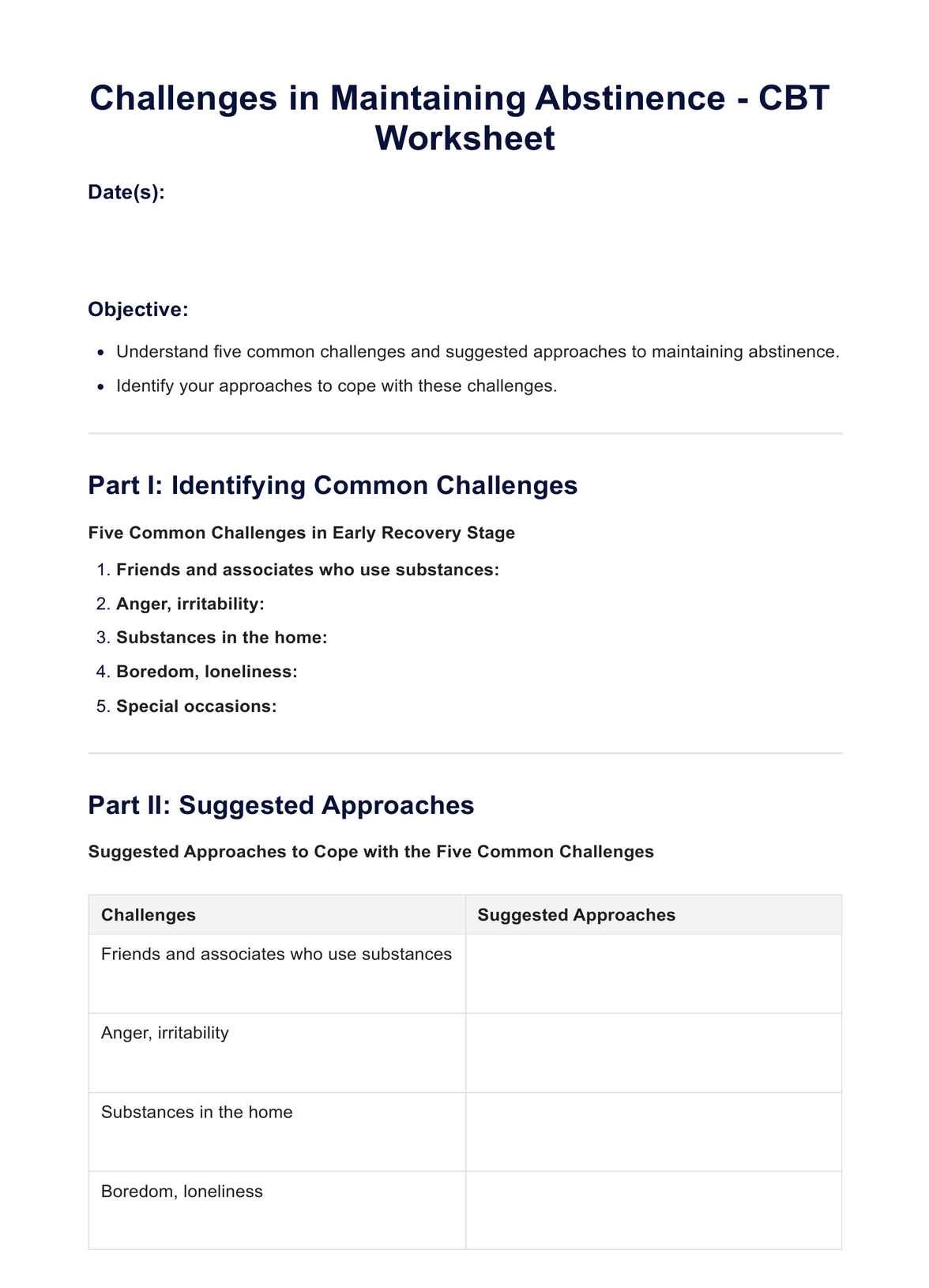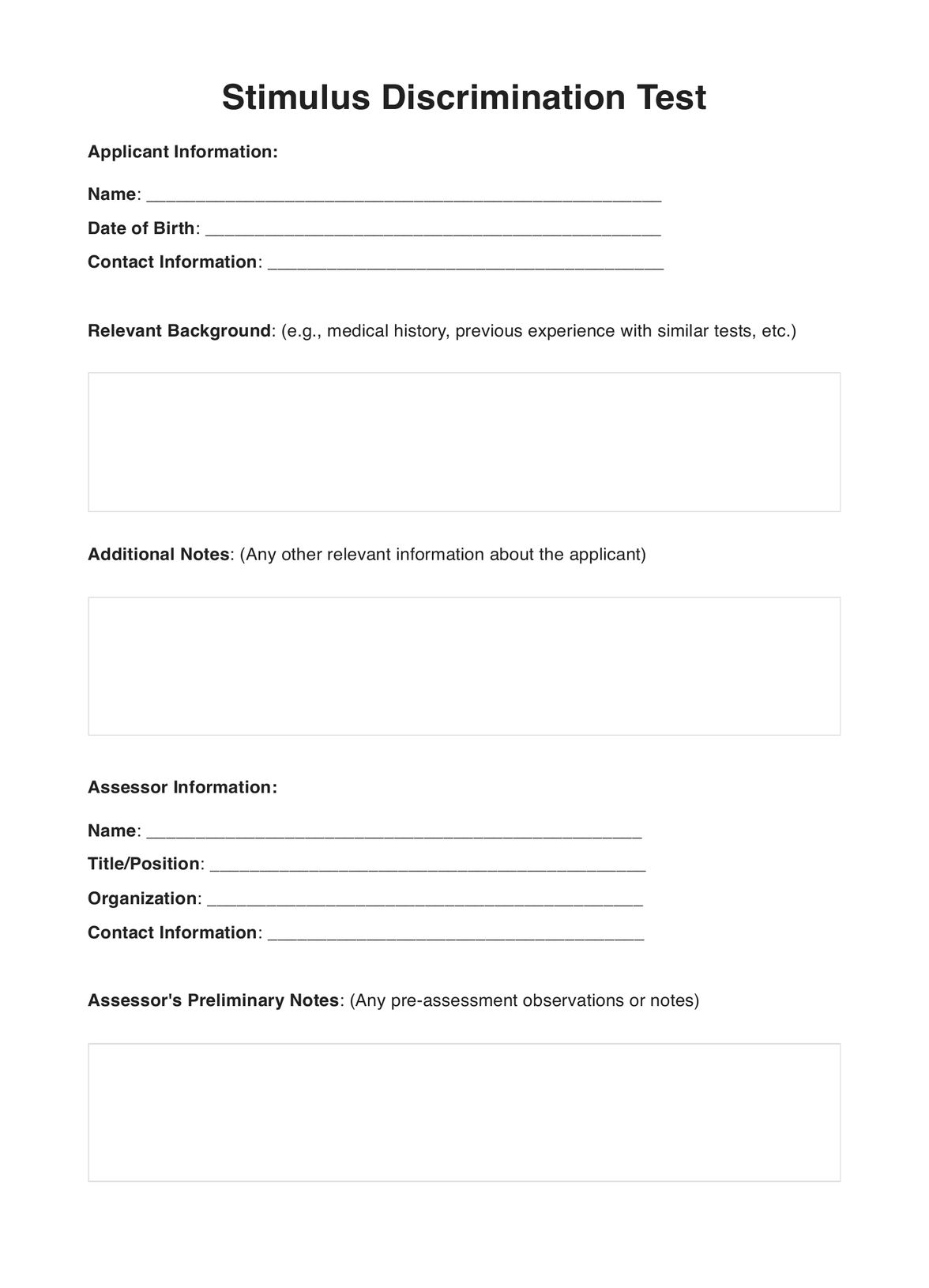Disputing Maladaptive Beliefs Anger Worksheet
Master your emotions with the Disputing Maladaptive Beliefs Anger Worksheet. Enhance anger management through cognitive-behavioral techniques.


What is Anger Management?
Anger management is a set of techniques and strategies designed to help individuals understand, control, and effectively deal with anger healthily and constructively. Anger, often considered a normal and natural emotion, is characterized by irritation, frustration, or hostility in response to perceived threats, injustices, or stressors.
However, when anger is not managed appropriately, it can lead to negative consequences for the individual experiencing anger and those around them.
This is essential for several reasons. Uncontrolled anger can damage relationships, workplace conflicts, physical health problems, and emotional distress. It can also result in impulsive and regrettable actions that one might later regret. Therefore, managing anger is crucial for personal and interpersonal well-being.
It involves various techniques, including:
- Self-awareness: The first step is understanding the triggers and early warning signs of anger. Recognizing when anger builds up allows individuals to intervene before it escalates.
- Relaxation techniques: Deep breathing, meditation, and progressive muscle relaxation can help reduce the physical and emotional tension associated with anger.
- Cognitive restructuring: This involves changing negative thought patterns and irrational beliefs that fuel anger. Individuals can diffuse their anger by adopting a more rational and balanced perspective.
- Communication skills: Expressing one's feelings and concerns assertively, rather than aggressively, is essential for resolving conflicts and preventing anger from spiraling out of control.
- Problem-solving: Developing practical problem-solving skills can help address the underlying issues that trigger anger, reducing recurrence.
- Stress management: Stress is often a significant contributor to anger. Managing stress through exercise, time management, and other stress-reduction techniques can reduce anger triggers.
Anger management is not about suppressing anger but channeling it healthily, promoting personal growth and improved relationships. It empowers individuals to take control of their emotions, respond to challenging situations more constructively, and lead a more fulfilling life.
Disputing Maladaptive Beliefs Anger Worksheet Template
Disputing Maladaptive Beliefs Anger Worksheet Example
How to use the Disputing Maladaptive Beliefs Anger Worksheet
The Disputing Maladaptive Beliefs Anger Worksheet is a CBT tool closely linked to the ABCD Model of Cognitive Restructuring. This model highlights the connection between beliefs (B) and emotional and behavioral responses (C) following an activating event (A). It is precious for challenging and reframing irrational anger-triggering beliefs.
Identify the Activating Event (A)
Begin by identifying the specific event or situation that triggered your anger. This could be something someone said or did or a circumstance you encountered.
Recognize the Belief (B)
Determine your belief or thought in response to the activating event. For instance, if someone criticized you, your belief might be, "I'm worthless."
Examine the Consequence (C)
Reflect on the emotional and behavioral consequences of holding that belief. This example could result in feeling extremely angry and responding defensively.
Dispute the Belief (D)
This is the core of the worksheet. Challenge and dispute your irrational or maladaptive belief by considering evidence supporting a more rational one. In this case, you might remind yourself of your accomplishments and that one person's opinion doesn't define your self-worth.
Develop a Balanced Belief
Replace the irrational belief with a more balanced and rational one. For example, you can believe that "I have value, and I can learn and grow from criticism."
Consider New Consequences
Envision how the new belief will produce more positive emotional and behavioral consequences. You might expect to feel less angry and respond more calmly and assertively.
Practice and Reflect
In real-life situations, practice using the new, balanced belief. Reflect on how it affects your emotional responses and behaviors, and adjust as needed.
Using the Disputing Maladaptive Beliefs Anger Worksheet and the ABCD model, individuals can gain insight into their anger triggers, reframe beliefs, and respond more rationally and constructively to challenging situations.
When Would you use This Disputing Maladaptive Beliefs Anger Worksheet?
The Disputing Maladaptive Beliefs Anger Worksheet is a valuable resource used in various contexts and by healthcare professionals to address anger management issues effectively.
- Individual Therapy: Mental health professionals, such as psychologists, therapists, and counselors, can use this worksheet during individual therapy sessions. It's most appropriate when a client struggles with persistent anger issues and wishes to gain better control over their emotions. This tool can help clients recognize and challenge irrational beliefs that fuel anger, promoting more constructive emotional responses.
- Group Therapy: The worksheet can be incorporated into group therapy sessions focused on anger management. Participants can share their experiences, beliefs, and emotional responses to activating events, and together, they can work on disputing and reframing these beliefs. Group therapy provides a supportive environment for individuals to learn from one another.
- Anger Management Classes: In structured anger management classes or workshops, facilitators can use the worksheet to guide participants in understanding and managing their anger. This setting is ideal for teaching essential skills in a group format.
- Self-Help and Self-Reflection: Individuals experiencing anger issues can also use the worksheet independently as a self-help tool. It allows for self-reflection and personal growth by identifying, disputing, and reframing maladaptive beliefs associated with anger triggers.
- Workplace and Employee Assistance Programs: Human resources professionals and employee assistance programs can incorporate this worksheet into employee anger management workshops. It can be particularly beneficial when workplace conflicts or stress contribute to anger-related issues.
The Disputing Maladaptive Beliefs Anger Worksheet is a versatile tool for healthcare professionals, therapists, and individuals aiming to manage anger more effectively. It works in clinical and self-help contexts, empowering individuals to confront and reframe irrational beliefs and improving emotional well-being.
What are the Benefits of Using This Disputing Maladaptive Beliefs Anger Worksheet?
Enhanced Anger Management Skills
The Disputing Maladaptive Beliefs Anger Worksheet equips individuals with valuable cognitive-behavioral tools to recognize, challenge, and reframe irrational beliefs contributing to anger. This fosters improved anger management, allowing individuals to respond more calmly and constructively to triggering situations.
Reduced Negative Emotional Responses
Research conducted by Beck and Fernandez-Parra in their study "Cognitive-Behavioral Therapy in the Treatment of Anger: A Meta-Analysis" (2007) showed that cognitive-behavioral techniques, including disputing maladaptive beliefs, effectively reduce anger-related emotional responses. This worksheet can help individuals experience decreased intense anger, frustration, and hostility.
Improved Communication
By addressing and disputing maladaptive beliefs, individuals can develop healthier communication patterns. They become more adept at expressing themselves assertively rather than aggressively, which can lead to better interpersonal relationships and conflict resolution.
Lowered Risk of Physical and Emotional Consequences
Anger that goes unmanaged can have adverse health effects, including increased stress and potential cardiovascular issues. By using the Disputing Maladaptive Beliefs Anger Worksheet, individuals reduce the risk of experiencing uncontrolled anger's negative physical and emotional consequences.
Enhanced Problem-Solving Skills
When individuals learn to identify and reframe irrational beliefs contributing to their anger, they become more skilled at addressing the underlying issues that trigger their anger. This fosters better problem-solving, allowing them to resolve conflicts more effectively.
Empowerment for Self-Help
The worksheet can be a valuable self-help tool, enabling individuals to take control of their emotional responses and personal growth. It empowers them to independently practice the cognitive restructuring, fostering resilience and improved mental and emotional well-being.
Commonly asked questions
The time to complete the worksheet varies depending on the individual. Some may finish it in one session, while others require multiple sessions to fully address their maladaptive beliefs and associated anger triggers.
This worksheet helps individuals identify and challenge irrational beliefs that fuel their anger. It empowers them to reframe these beliefs, improving anger management, reducing negative emotional responses, and enhancing communication and problem-solving skills.
The worksheet is best used when individuals are experiencing anger management issues or intense emotional responses to specific triggers. It's beneficial in therapy, group sessions, self-help, and anger management classes.
The worksheet is suitable for individuals seeking to manage their anger effectively, as well as healthcare professionals, therapists, counselors, and facilitators conducting anger management therapy, workshops, or group sessions. It is a versatile tool for personal growth and professional practice.


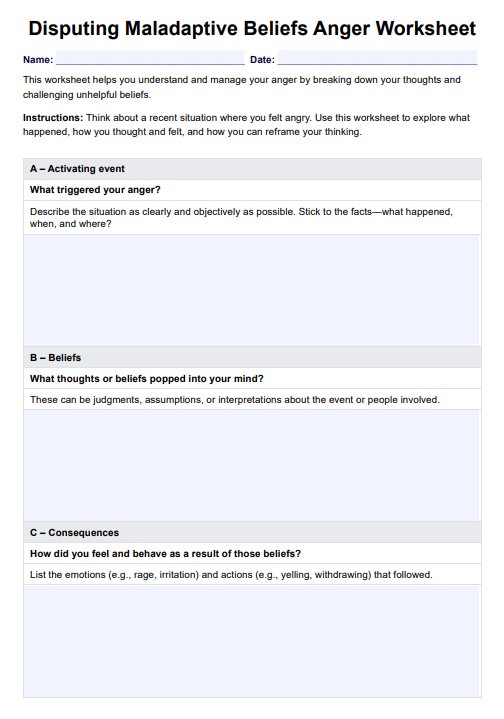
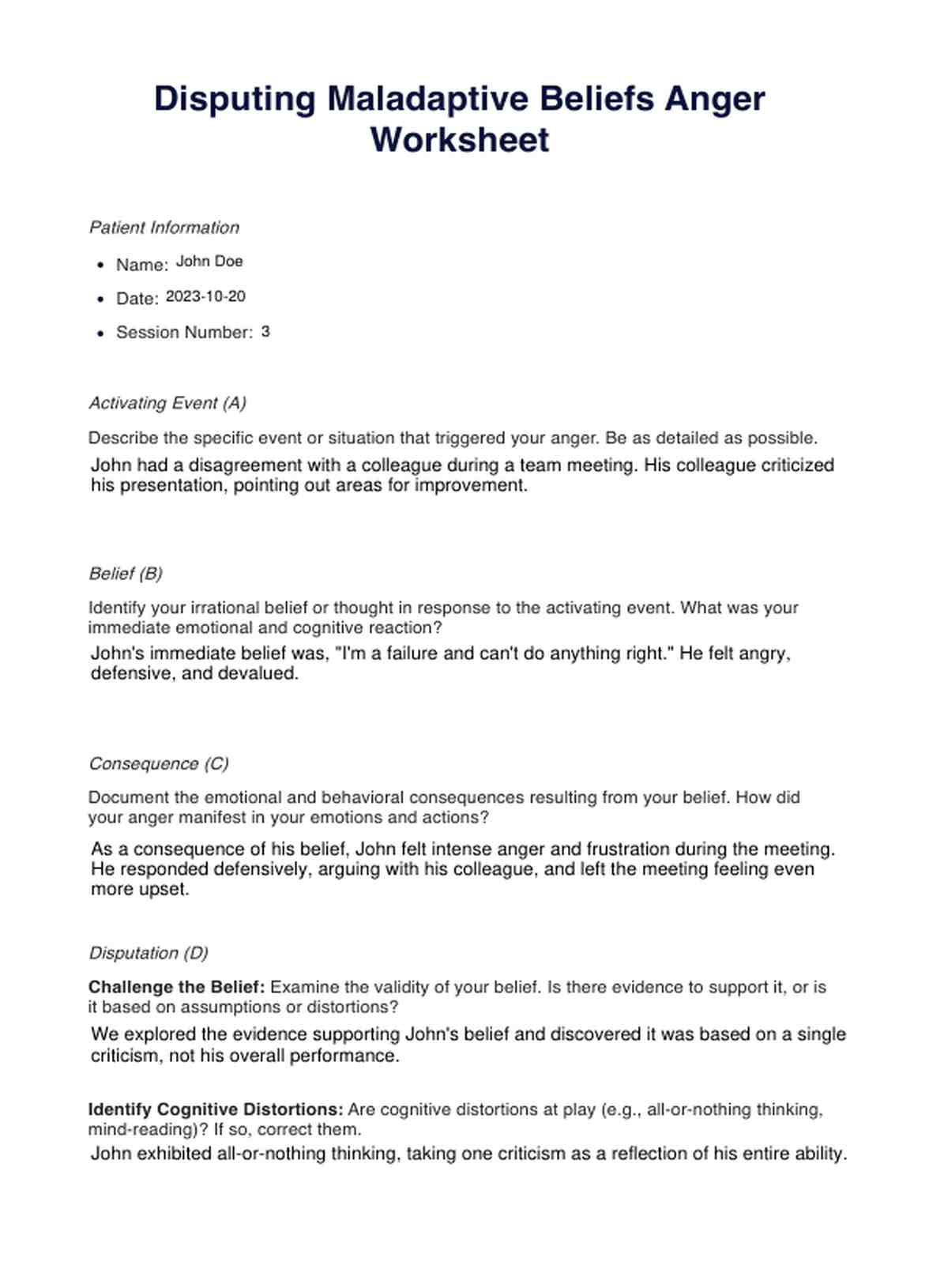















-template.jpg)





















































































